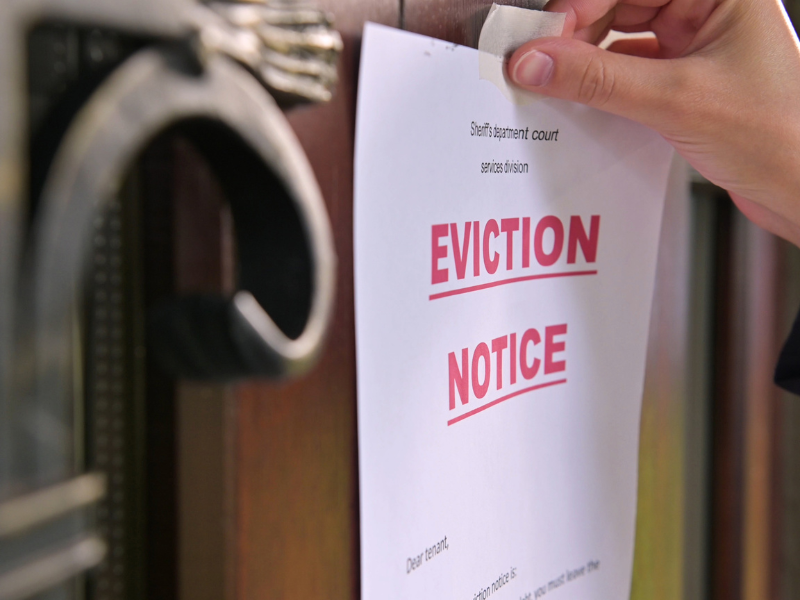With rents soaring in Toronto and housing in short supply, the city’s rental market is in a state of flux. One of the most surprising trends of the summer has been a sharp spike in N12 evictions.
Also known as ‘personal use’ evictions, N12s are when landlords ask their tenants to vacate their units because they want them for themselves, a family member or a caretaker. N12 applications rose 77% this year, soaring from 1,312 in 2022 to 1,767 applications from January to September 2023.
It’s impossible to tell how many of these cases are genuine and how many were issued in bad faith. The broad terms of an N12 leave it vulnerable to being exploited by unethical landlords as they only need to prove intent to occupy in order to evict their tenants.
This ambiguity has led many tenant groups to push for stricter application of N12 evictions, and the government appears to be listening. This summer, the province proposed ramping up penalties for bad faith N12 evictions, and tightening the conditions under which landlords can apply.
How and when to apply for an N12
If they genuinely need their property, landlords can ask their tenants to vacate. To meet the criteria landlords need to:
- State that they, a member of their immediate family or a person who provides or will provide care services to them or their family member wants to move into the rental unit and occupy it for at least one year
- Pay the tenant an amount equal to one month’s rent as compensation or offer the tenant another rental unit that is acceptable to them
- Give the tenant an N12 notice and set a termination date for the lease at least 60 days after issuing the notice.
If the tenant doesn’t move out, landlords can then apply to the LTB for an immediate eviction no later than 30 days after the termination date.
Upcoming changes to N12 evictions
Newly introduced Bill 97 is proposing to amend the Residential Tenancies Act so that landlords can’t misuse N12 evictions. The province wants to add a new provision stating that landlords must move into the unit (or move their family member or caregiver) within a set timeframe after evicting their tenant. If they fail to do so, it will be assumed that they acted in bad faith and penalties will apply.
And those penalties will be severe. CBC reports that the bill will double the maximum fines for bad faith evictions to $100,000.
While these penalties aren’t yet in force, it’s still unwise to falsely serve an N12. Ousted tenants will be keeping an eye on the property and checking listings to see if it’s relisted or occupied.
Of course, there may be circumstances in which you genuinely are able to re-rent – the family member who occupied the unit is moving on, a caregiver quits etc. In this situation, landlords would have to prove that their intentions were good at the time of eviction and that their circumstances have changed since then.
The experienced team at Highgate Property Management has helped hundreds of landlords across the GTA develop good relationships with their tenants, navigate LTB hearings, and issue evictions if required. Our knowledgeable property professionals help with all aspects of being a landlord, from finding and vetting tenants to maintaining your unit. Contact us today to see how we can help you make the most of your investment.





